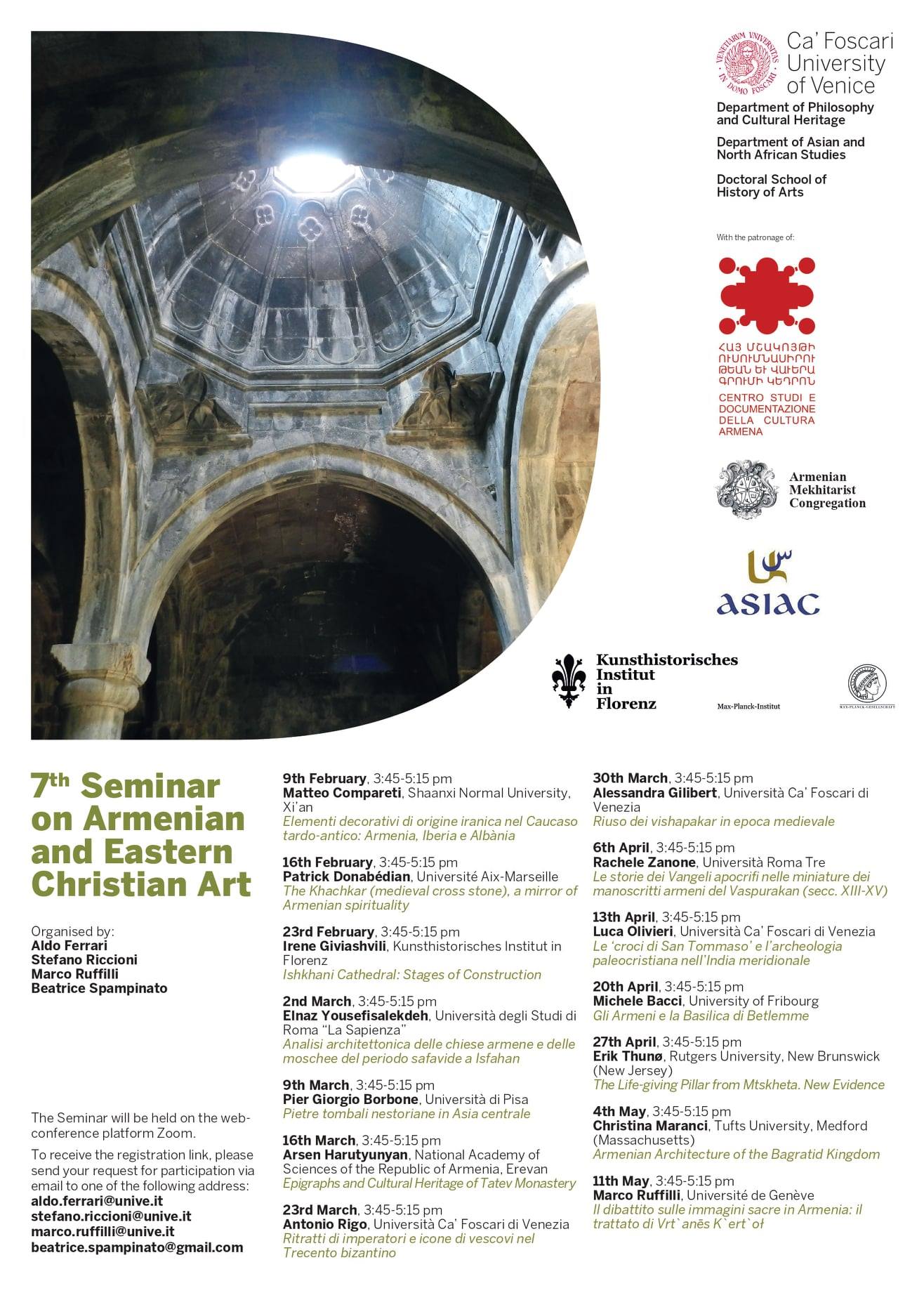Appel à candidatures : Medieval Eastern Mediterranean Cities as Places of Artistic Interchange
Appel à candidatures :
https://www.soasresearch.org/gettyartisticinterchange
A Research Seminar Programme for Early Career Researchers into Medieval Eastern Mediterranean Cities as Places of Artistic Interchange
The School of Arts at SOAS University of London is pleased to announce the launch of a new research seminar programme for young and early career researchers in the art and archaeology of the medieval eastern Mediterranean, supported by the Getty Foundation as part of its Connecting Art Histories initiative.
Medieval Eastern Mediterranean Cities as Places of Artistic Interchange is an online seminar programme for emerging academics which focuses on the role played by cities in the medieval eastern Mediterranean, from the 12th to the 14th centuries CE, in the production, consumption, transformation and understanding of works of art and architecture.
During this time cities in the region were places of exchange of raw materials, manufactured goods, artists and craftsmen, and ideas. With exchange came transformation, either intentional through novel creations, or through creative repurposings and misunderstandings. The mixed populations of cities, in this context mainly ports, contributed to transformation as well, but also to the creation of international languages, whether actual, such as the pidgin of lingua franca which arose at this time, or visual, like the technological transformation of artefacts from the pigments used in manuscript illustration to enamelled glass and glazed ceramics. This led to stylistic developments such as international koinai in architecture (commercial, palatial, military), heraldry (to use the western medieval term: the arts of war and sport) and procession.
This seminar pairs cities, scholars and the site-specific questions that arise from them to explore these and other aspects of artistic and cultural interchange in the medieval eastern Mediterranean region, with a particular focus on new research in lesser-known cities to highlight recent archaeological and other scholarly discoveries.
The project is open to early career academic researchers (who have received their doctorates in the last three years) and tutors, research students (PhD students) at an advanced stage of their studies and those working in historical research institutes (such as archaeology centres, museums, government and non-governmental agencies dealing with history, art or archaeology) who are from the countries of the eastern Mediterranean region and the Middle East.
The target audience for this seminar programme is young professionals with advanced degrees (or equivalent work experience) in art history and/or archaeology of the period from the 12th to the 14th centuries who are from the countries of the eastern Mediterranean or Middle East.
Participants selected to take part in the programme will receive £2000 (British pounds) each to be used for research purposes: this includes the purchasing of books or other scholarly resources, upgrading of internet access, purchase of headphones, and the like.
The seminar programme will take place online in English and a high level of English language proficiency is required from participants.
Scholars currently residing and working in the Eastern Mediterranean region are especially encouraged to apply.
Prof. dr. Irene van Renswoude, « Erasure: an effective form of censorship? Editing contested content in Late Antique and Early Medieval Manuscripts »
The Postgraduate and Early Career Late Antiquity Network presents a rescheduled second Keynote from its November workshop on ‘Erasure in Late Antiquity’, hosted (virtually) by the Classics Department at Trinity College Dublin :
Prof. dr. Irene van Renswoude
Erasure: an effective form of censorship? Editing contested content in Late Antique and Early Medieval Manuscripts
Thursday, February 25, at 4.00 – 5.30pm GMT
TCD Classics via Zoom
Irene van Renswoude (University of Amsterdam & The Royal Netherlands Academy of Arts and Sciences, Huygens ING) will be speaking on the late antique editing practices of Rufinus, Jerome and Cassiodorus. She will be exploring these writers’ efforts to ‘clean up’ heretical passages, and the editing of these passages in early medieval manuscripts.
Oxford University Byzantine Society’s 23rd International Graduate Conference
Oxford University Byzantine Society’s 23rd International Graduate Conference :
Self-Representation in Late Antiquity and Byzantium
Pour enregistrer et pour voir le programme, cliquez ici.





